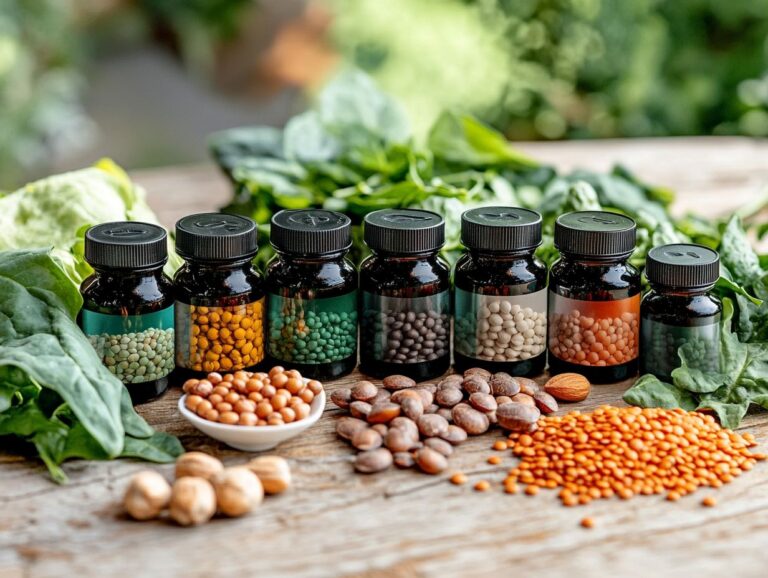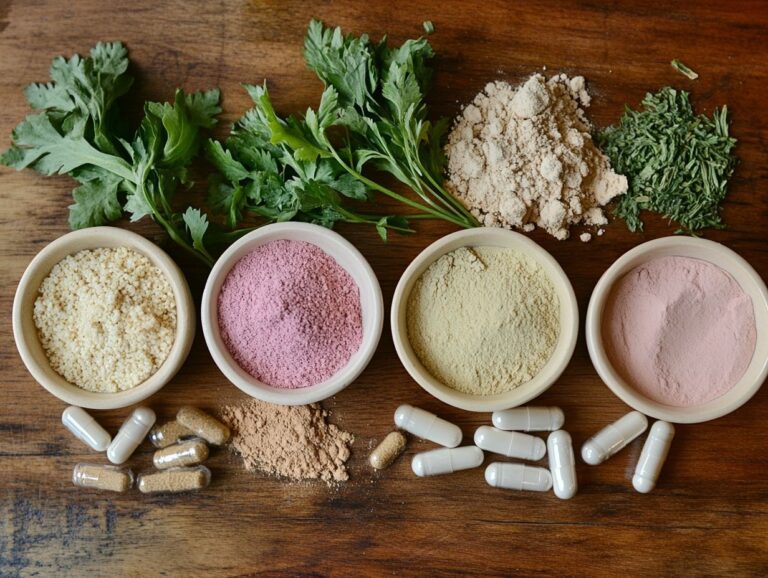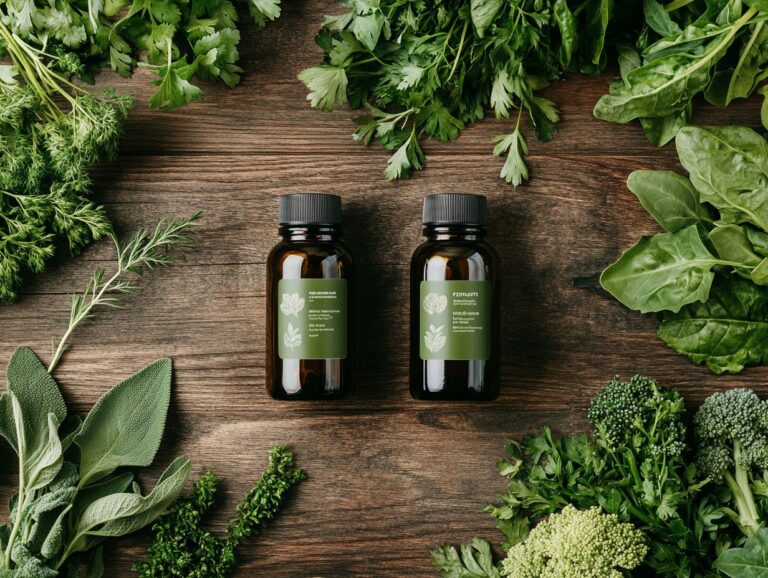In the realm of fitness, balanced nutrition is essential for providing adequate energy and nutrients. However, individuals following a vegan lifestyle may find it challenging to meet their nutritional needs. Supplements can help bridge the gaps, ensuring that essential nutrients often lacking in a plant-based diet are included. From protein powders to vitamin B12, these supplements can enhance fitness, improve performance, and aid in recovery. This article explores the importance of vegan supplements, discusses what they are, and offers guidance on how to determine which ones are best suited for your individual fitness needs.
Key Takeaways:
- Vegan fitness supplements, such as protein powder, BCAAs, creatine, iron, and vitamin B12, are important for filling nutritional gaps in a vegan diet.
- These supplements can help with building and maintaining muscle, enhancing performance and endurance, and improving recovery time during workouts.
- When choosing supplements, consult with a healthcare professional, consider your fitness goals, and carefully read labels and ingredients to avoid potential risks or side effects.
Why Are Supplements Important for Vegan Fitness?
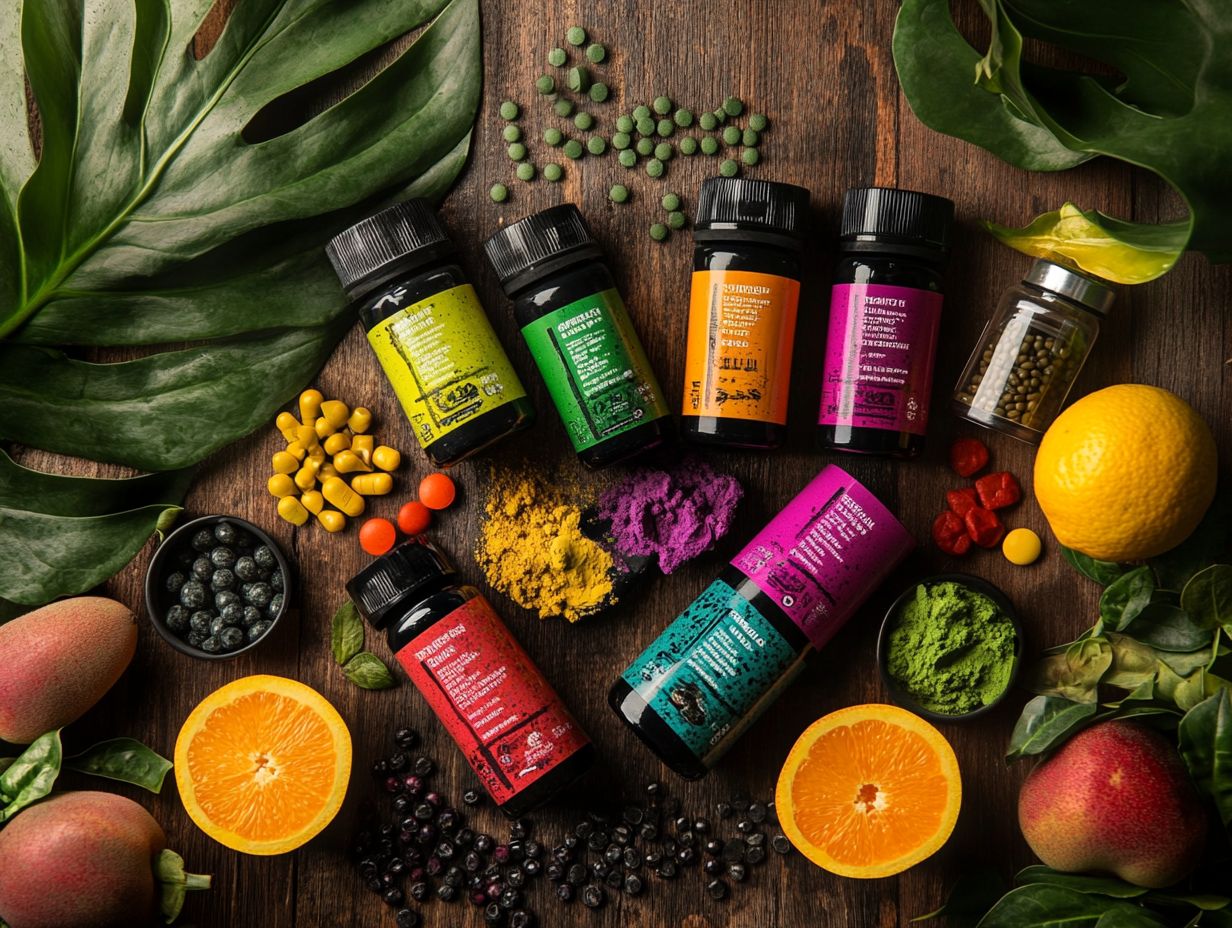 Supplements play a crucial role in vegan fitness by addressing the nutrient deficiencies that are often associated with a vegan diet. They ensure that individuals engaged in strength training and bodybuilding can achieve their fitness goals while also maintaining their overall health. While a well-structured vegan diet can provide essential nutrients, factors such as food choices, preparation methods, and individual variations may lead to nutritional gaps that require sports nutrition solutions.
Supplements play a crucial role in vegan fitness by addressing the nutrient deficiencies that are often associated with a vegan diet. They ensure that individuals engaged in strength training and bodybuilding can achieve their fitness goals while also maintaining their overall health. While a well-structured vegan diet can provide essential nutrients, factors such as food choices, preparation methods, and individual variations may lead to nutritional gaps that require sports nutrition solutions.
What Nutrients Are Lacking in a Vegan Diet?
While a vegan diet is rich in many nutrients, it often lacks certain essential vitamins and minerals, such as vitamin B12, iron, zinc, iodine, and omega-3 fatty acids, which require attention to maintain optimal health and athletic performance. These nutrients play a critical role in energy production, muscle repair, and overall physical endurance, making them vital for anyone engaged in strength training. Vegans may find it particularly challenging to obtain sufficient amounts of vitamin B12, which is typically found in animal products and is necessary for red blood cell formation and neurological function. Iron, another essential mineral, is crucial for oxygen transport in the blood; however, while it is present in plant sources, its bioavailability is lower compared to iron from animal-derived foods. Additionally, omega-3 fatty acids are important for reducing inflammation, which aids in recovery after exercise. Moreover, Vitamin D3 is also critical for bone health and immune function. To bridge these nutritional gaps, many individuals choose vegan protein powders and fortified foods, ensuring they meet their dietary needs while maintaining a balanced and healthy vegan nutrition plan.
What Are the Essential Vegan Fitness Supplements?
Essential vegan fitness supplements can optimize performance, support muscle growth, and help prevent nutrient deficiencies in athletes who follow a plant-based diet. Products like Earth Protein and Future Whey offer plant-based protein solutions ideal for muscle synthesis. Appropriate supplementation enhances athletic performance and recovery, enabling individuals to reach their fitness goals more effectively while considering environmental impact.
1. Protein Powder
Vegan protein powders, derived from sources such as peas, rice, or hemp, provide essential amino acids that are crucial for muscle growth and recovery in athletes following a vegan diet. Products like Plant Protein Water and Muscle Nation offer convenient plant-based protein options. These plant-based proteins not only offer a complete amino acid profile but are also packed with additional nutrients, including fiber and vitamins, which can enhance overall health and athletic performance. For example, pea protein is rich in branched-chain amino acids (BCAAs), which are known to support muscle repair after intense workouts, while rice protein helps balance amino acid profiles when combined with other sources. By incorporating these powders into smoothies, oatmeal, or baked goods, athletes can easily boost their protein intake, ensuring they meet their nutritional requirements for muscle synthesis and recovery, thereby optimizing their fitness routines.
2. BCAAs
Branched-Chain Amino Acids (BCAAs) are essential nutrients that help reduce muscle fatigue and accelerate recovery, making them a popular supplement among athletes, particularly vegans. BCAAs consist of three essential amino acids: leucine, isoleucine, and valine. These amino acids are crucial for enhancing protein synthesis and preventing muscle wasting during exercise. For individuals engaged in strength training, BCAAs are especially important as they help alleviate delayed onset muscle soreness (DOMS), which is common after intense workouts. Research indicates that BCAA supplementation can improve athletic performance by providing an additional energy source, which is particularly beneficial for vegan athletes seeking to maintain their endurance and strength without animal protein sources. Therefore, BCAA supplementation is vital for vegans to ensure they meet their muscular health and recovery needs.
3. Creatine
Creatine supplementation is commonly linked to muscle growth and enhanced athletic performance, and it is becoming increasingly popular among vegan athletes who want to maximize their training results. This naturally occurring compound plays a crucial role in providing energy to muscles during high-intensity workouts, thereby improving strength and power output. Vegan supplements such as Creatine Monohydrate are ideal for those seeking to enhance their strength while aligning with vegan values. When used effectively, creatine can lead to more explosive workouts, enabling individuals to push their limits and achieve their fitness goals more quickly. For those following a vegan lifestyle, products like Creatine Monohydrate offer an excellent option, as they are derived from non-animal sources. Incorporating this supplement into a regular fitness regimen can be as simple as mixing it with a post-workout shake or adding it to pre-workout preparations, ensuring that the body receives the necessary boost for optimal performance without compromising dietary choices.
4. Iron
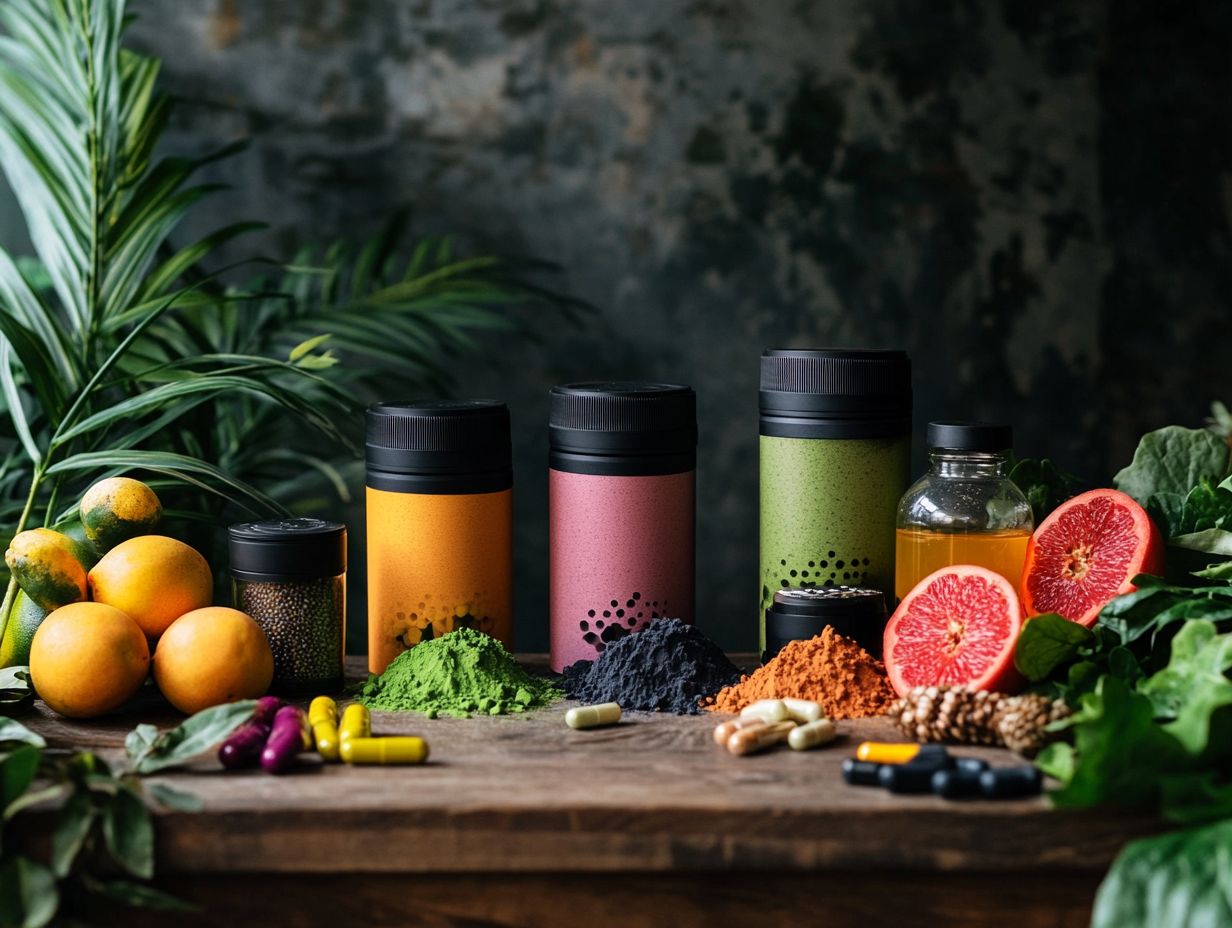 Iron is an essential mineral that many vegans often lack. Iron supplementation can be particularly beneficial for preventing deficiency, especially among athletes with heightened iron needs. This mineral plays a crucial role in transporting oxygen throughout the body, thereby providing energy and endurance for physical activity. Maintaining adequate iron levels is vital for individuals who train rigorously or are competitive athletes, as it helps prevent fatigue and ensures optimal athletic performance. Vegan sources of iron include plant foods such as:
Iron is an essential mineral that many vegans often lack. Iron supplementation can be particularly beneficial for preventing deficiency, especially among athletes with heightened iron needs. This mineral plays a crucial role in transporting oxygen throughout the body, thereby providing energy and endurance for physical activity. Maintaining adequate iron levels is vital for individuals who train rigorously or are competitive athletes, as it helps prevent fatigue and ensures optimal athletic performance. Vegan sources of iron include plant foods such as:
- lentils
- chickpeas
- tofu
- quinoa
- dark green leafy vegetables like spinach
Incorporating vitamin C-rich foods into the diet can enhance the absorption of iron from these plant sources. For some individuals, iron supplements can be a convenient way to meet dietary requirements, promoting good health and vitality.
5. Vitamin B12
Vitamin B12 (cobalamin) is one of the most commonly deficient micronutrients in a vegan diet, and supplementation can help maintain energy levels and overall health. This essential vitamin plays a crucial role in the production of red blood cells and the synthesis of DNA, making it a significant factor in overall vitality. Additionally, B12 is vital for maintaining healthy nerve function, as it contributes to the formation of the myelin sheath that protects nerve fibers. A deficiency in B12 can lead to serious neurological issues, as well as anemia, fatigue, and weakness. Therefore, individuals following a vegan diet should pay special attention to fortified foods, such as plant-based milks and cereals, as well as high-quality supplements to avoid deficiencies.
How Do These Supplements Help with Fitness?
Vegan athlete supplements play a crucial role in promoting muscle growth, enhancing athletic performance, and improving recovery time, making them essential for a successful training program. Taurine and Spirulina are also valuable additions to a vegan athlete’s supplement regimen.
1. Building and Maintaining Muscle
Building and maintaining muscle mass is essential for athletes, and vegan protein sources supplemented with amino acids can facilitate this process. Vegan protein sources contain nutrients that support muscle repair and growth, which are vital after intense training sessions. Individuals engaged in resistance (strength) training need adequate protein to stimulate muscle protein synthesis and enhance performance and recovery. Vegan protein powders supplemented with branched-chain amino acids (BCAAs) provide the necessary components for muscle tissue regeneration. This allows athletes to achieve effective training outcomes while adhering to a diet aligned with plant-based values, demonstrating that successful muscle maintenance and growth can be attained on a vegan diet.
2. Enhancing Performance and Endurance
Vegan supplements, including creatine, beta-alanine, and BCAA, enhance athletes’ performance and endurance, allowing them to train harder and longer. These substances serve different but complementary functions in the body. Creatine primarily works by replenishing adenosine triphosphate (ATP), the main energy carrier in cells, which increases power output during short bursts of intense exercise. This surge in energy enables athletes to perform more repetitions or run faster over longer distances. On the other hand, beta-alanine contributes to the production of carnosine, a dipeptide that helps buffer lactic acid in muscles. This buffering action mitigates feelings of fatigue and burning during high-intensity workouts, thereby improving stamina. Together, these supplements work synergistically to enhance overall athletic performance.
3. Improving Recovery Time
To enhance recovery time for athletes, appropriate vegan supplements can help reduce muscle fatigue and promote quicker recovery after strenuous exercise. Athletes can employ specific strategies to optimize their recovery process, particularly through nutrition, ensuring a faster return to peak performance following intense workouts. Branched-chain amino acids (BCAAs) are a beneficial supplement known to aid in recovery by helping to repair muscles and reduce soreness, as they decrease muscle breakdown that occurs during high-intensity activities. Additionally, protein powders, especially those derived from plants, provide essential nutrients necessary for muscle rebuilding and improved performance. Vegan athletes should maintain a diverse diet rich in whole foods, vitamins, and minerals as part of a comprehensive recovery strategy to facilitate a faster return to peak performance.
What Are the Different Types of Vegan Supplements?
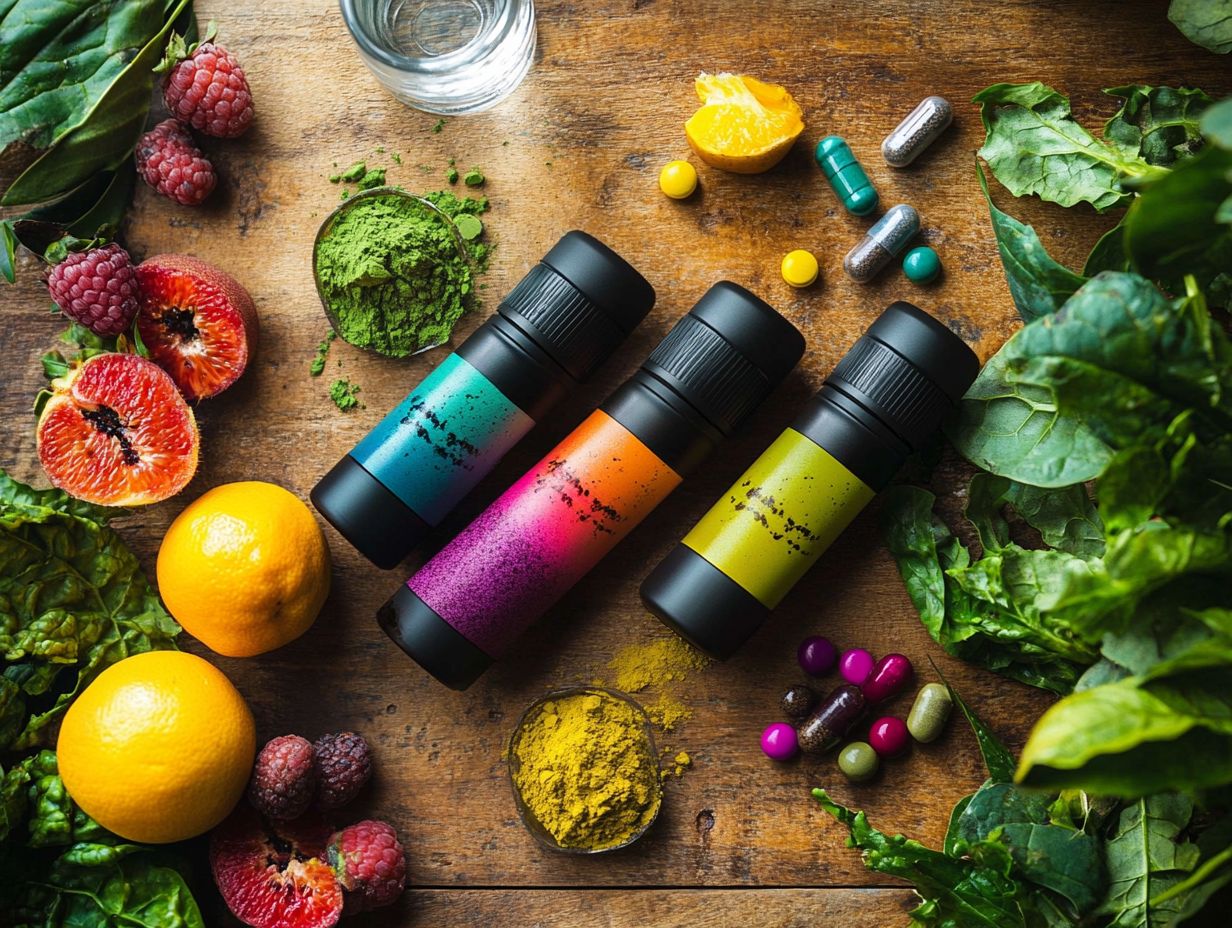 Vegan supplements can be categorized into three types: plant-based supplements, synthetic supplements, and whole food supplements. Each category offers unique benefits for athletes striving to achieve their fitness goals.
Vegan supplements can be categorized into three types: plant-based supplements, synthetic supplements, and whole food supplements. Each category offers unique benefits for athletes striving to achieve their fitness goals.
1. Plant-based Supplements
Plant-based supplements, including vegan protein powders and amino acid formulations, are derived from natural sources and offer a clean way to support athletic performance. These supplements are not only beneficial for athletes but also help individuals following a vegan lifestyle to obtain adequate nutrition. Options like pea protein, brown rice protein, and spirulina make it easy for people to enhance their diets to meet their protein and nutrient needs. Reputable vegan protein powder brands, such as Garden of Life and Sunwarrior, provide well-rounded products that combine various plant materials to maximize benefits for muscle recovery and overall health. Incorporating these supplements into a balanced vegan nutrition plan can help address any nutritional gaps while boosting energy and vitality.
2. Synthetic Supplements
Synthetic supplements, such as creatine and beta-alanine, are designed to enhance athletic performance and muscle recovery for athletes following a vegan diet. These manufactured products serve as effective replacements for traditional, naturally occurring substances. By utilizing targeted compounds, synthetic supplements can increase energy levels and improve endurance, which is essential for athletes seeking to maximize their strength and speed. For instance, creatine boosts phosphocreatine stores in the muscles, enabling more intense training sessions, while beta-alanine helps reduce fatigue by acting as a buffer against acidity in the muscles. When used judiciously as part of a comprehensive wellness program, these supplements can significantly contribute to achieving specific performance goals, particularly when natural sources do not offer sufficient support for rigorous athletic training.
3. Whole Food Supplements
Whole food supplements, such as spirulina and various nutrient-dense powders, provide natural sources of essential vitamins and minerals to help combat deficiencies in a vegan diet. These supplements are particularly beneficial for individuals following plant-based diets, as they offer an easy way to ensure adequate intake of nutrients that may be lacking from fruits and vegetables alone. Spirulina is a powerhouse of protein and omega-3 fatty acids, making it an excellent addition for enhancing recovery and performance. Nutrient-dense green powders, often blended with superfoods like chlorella and wheatgrass, can be easily incorporated into smoothies or oatmeal, providing a convenient nutrient boost. The inclusion of these whole food supplements not only supports muscle health and energy levels but also contributes to the overall well-being of vegan athletes striving for peak performance.
How to Choose the Right Supplements for Your Fitness Goals?
The best supplements for achieving your fitness goals depend on your individual nutritional needs, guidance from a healthcare professional, and thorough label reading to select the most appropriate products.
1. Consult with a Healthcare Professional
Consulting with a healthcare professional is essential for vegans to identify which supplements may be necessary to support their fitness goals and overall health. This guidance is crucial, as individual dietary requirements can vary significantly among vegans, influenced by factors such as age, activity level, and specific health conditions. A tailored approach ensures that supplement choices align with personal nutritional needs, enhancing both performance and overall wellness. By engaging with an expert, individuals can gain insights into which vitamins, minerals, or protein sources may be lacking in their diet. This personalized strategy can ultimately lead to better outcomes, helping individuals not only meet their fitness objectives but also thrive in their daily lives.
2. Consider Your Fitness Goals
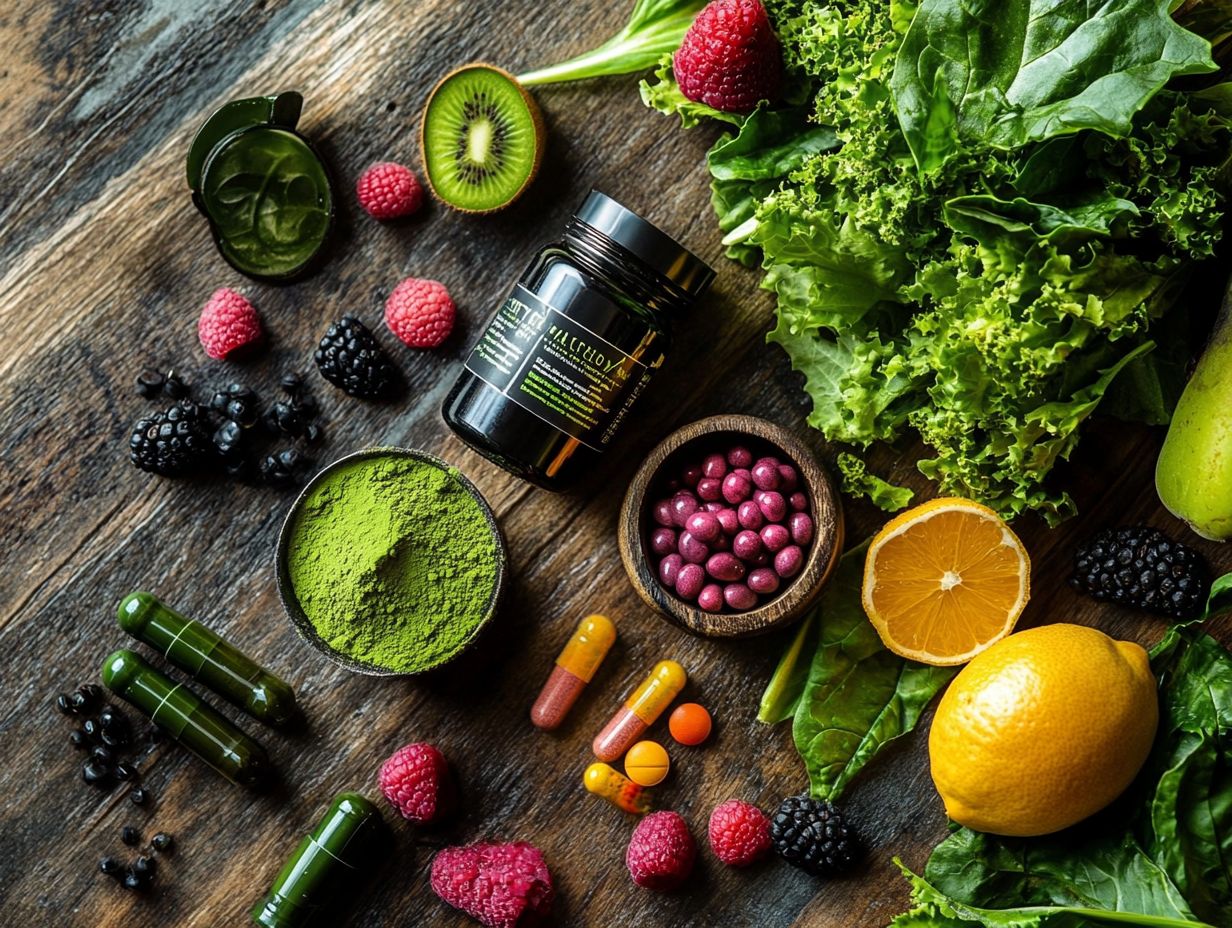 Understanding your specific fitness goals is essential for selecting the right vegan supplements that can aid in muscle growth, recovery, and overall performance. Whether your objective is bulking, enhancing endurance, or simply maintaining a healthy lifestyle, each goal requires different nutritional support. For instance, if your aim is to increase lean muscle mass, protein supplements such as pea or hemp protein may be particularly beneficial. Conversely, if you are focused on endurance training, branched-chain amino acids (BCAAs) can help reduce muscle fatigue during prolonged workouts. By taking personal fitness goals into account, individuals can make informed decisions that align their supplement intake with their unique needs, ultimately leading to more effective and satisfying results.
Understanding your specific fitness goals is essential for selecting the right vegan supplements that can aid in muscle growth, recovery, and overall performance. Whether your objective is bulking, enhancing endurance, or simply maintaining a healthy lifestyle, each goal requires different nutritional support. For instance, if your aim is to increase lean muscle mass, protein supplements such as pea or hemp protein may be particularly beneficial. Conversely, if you are focused on endurance training, branched-chain amino acids (BCAAs) can help reduce muscle fatigue during prolonged workouts. By taking personal fitness goals into account, individuals can make informed decisions that align their supplement intake with their unique needs, ultimately leading to more effective and satisfying results.
3. Read Labels and Ingredients Carefully
Carefully reading labels and ingredients is essential when selecting vegan supplements. This practice ensures that consumers purchase quality products and promotes transparency about the contents of the supplements. By examining labels, individuals can make informed choices that directly affect their health and fitness goals. It is advisable to look for certifications such as USDA Organic or Non-GMO Project Verified, as these labels confirm the integrity of the sourcing. Additionally, ingredient sourcing should be scrutinized; understanding where ingredients originate can provide valuable insight into their purity and sustainability. Those with restricted diets should be vigilant about potential allergens that may be hidden within formulations. Choosing high-quality vegan supplements not only enhances well-being but also aligns with personal values, contributing to a fuller and richer life.
Are There Any Risks or Side Effects of Vegan Supplements?
Vegan supplements can provide essential nutrients and assist in achieving fitness goals. However, they also carry potential risks and side effects, including allergic reactions and interactions with medications.
1. Allergic Reactions
Allergic reactions to certain vegan supplements are possible, making it essential to understand ingredient sources and potential allergens before consumption. Some plant-based ingredients found in vegan supplements may come from common allergens such as soy, nuts, or gluten. Therefore, it is crucial to carefully read ingredient labels to identify any potential allergens. Additionally, cross-contamination during the manufacturing of supplements can introduce allergens. A simple precaution is to perform patch tests by applying a small amount of the supplement to the skin to check for any immediate reactions. Consulting with healthcare providers who are knowledgeable about dietary options and individual medical histories can offer tailored advice and ensure that personalized dietary choices do not lead to unintended adverse effects, especially for those with a history of allergies.
2. Interactions with Medications
Interactions between vegan supplements and medications can pose health risks, so individuals should always consult healthcare professionals before starting any supplementation. These interactions can range from mild to severe and may lead to reduced efficacy of prescribed treatments as well as harmful side effects. For instance, certain herbal supplements can either speed up or slow down the metabolism of specific medications, potentially resulting in dangerous complications. Therefore, it is crucial for those considering vegan supplementation to discuss their plans with a healthcare professional who can provide guidance tailored to their individual medical circumstances and existing prescriptions. This approach not only minimizes risks but also ensures that any supplement regimen does not conflict with ongoing treatments.
3. Overdose or Toxicity
Overdosing on vegan supplements, particularly those containing concentrated forms of nutrients, can lead to toxicity and serious health issues; therefore, responsible use is essential. To mitigate these risks, individuals must strictly adhere to the recommended serving sizes indicated on the labels of vegan supplements. These guidelines are designed to ensure that users can reap the benefits of supplements while minimizing the risk of overdose. Additionally, it is advisable to consult a medical professional before incorporating new supplements into one s regimen, especially for those with underlying health conditions or who are taking medications. Emphasizing a balanced diet is also important, as whole food sources typically provide nutrients in safer, more bioavailable forms. Incorporating vegan supplements like vitamin B12, vitamin D3, and omega-3 fatty acids can help prevent nutrient deficiencies common in plant-based diets.
